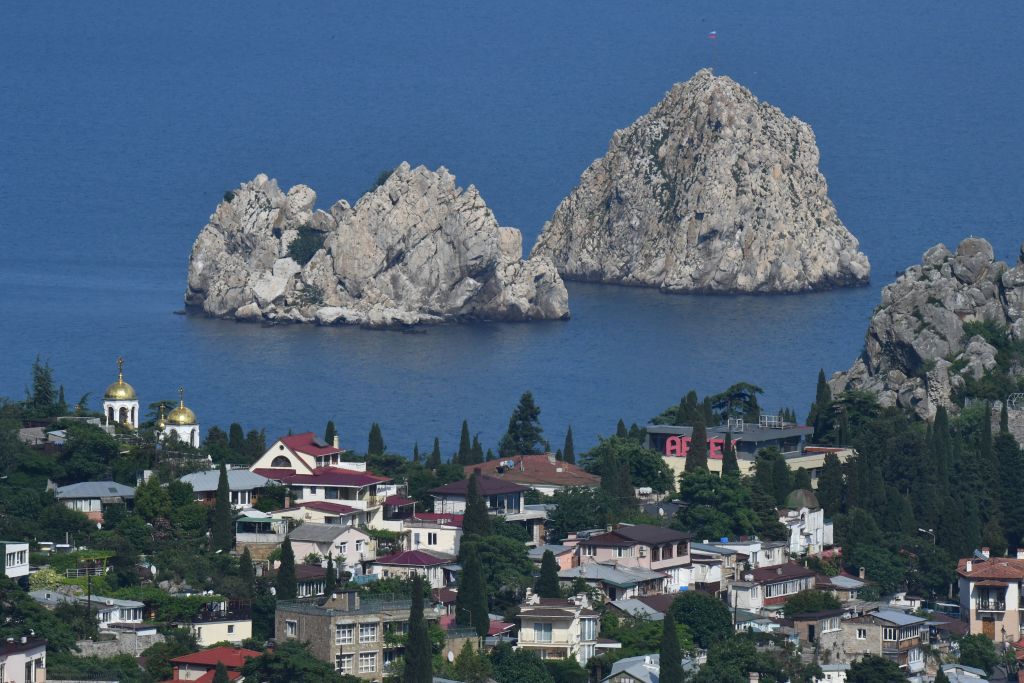Russia claimed to have shot down 21 Ukrainian drones over occupied Crimea and the Black Sea on July 23. Local reports indicated explosions in the area, with residents in Dzhankoi hearing the sounds. Traffic on the Kerch Bridge, connecting mainland Russia with occupied Crimea, was reportedly halted. Earlier reports suggested that 15 Ukrainian drones were downed over the Black Sea. The Russian Defense Ministry later stated that a total of 21 drones were shot down over the occupied peninsula and the sea. Ukrainian drone and naval strikes have targeted the region, leading Russian forces to boost their air defenses.
According to former Deputy Prosecutor General Gyunduz Mamedov, the Russian authorities began dismantling the last remaining Ukrainian Orthodox Church in occupied Crimea. This action was confirmed by Metropolitan Klyment of the Orthodox Church of Ukraine Diocese in Crimea. The church’s removal marks a significant loss for the OCU in the peninsula, signaling further repression of religious freedom in the region. The move is part of a broader trend of cultural erasure and suppression of minority groups in Crimea since its annexation by Russia in 2014. The OCU has faced persecution and harassment under Russian-controlled authorities.
The situation in Crimea is part of a broader conflict between Ukraine and Russia, which has been ongoing since Russia’s annexation of Crimea in 2014. Ukraine has not commented on Russia’s claims of shooting down the drones, highlighting the lack of independent verification. The conflict in Crimea has resulted in ongoing tensions and military confrontations between the two countries. The presence of Russian forces in the region has led to increased militarization and insecurity for the local population. The dismantling of the Ukrainian Orthodox Church in Crimea is seen as a further attempt by Russia to assert control over the region.
The Ukrainian government and international community have condemned Russia’s actions in Crimea, including the shooting down of drones and the dismantling of the Ukrainian Orthodox Church. The ongoing conflict in Crimea has been a point of contention between Ukraine and Russia, with both countries accusing each other of aggression and violating international law. The situation in Crimea continues to be a focal point of geopolitical tensions between Russia and Western countries. The dismantling of the church in Crimea is seen as a violation of religious freedom and a further encroachment on Ukrainian sovereignty by Russia.
The conflict in Crimea has had significant implications for the local population, including restrictions on freedom of movement, access to essential services, and basic human rights. The presence of Russian forces in the region has led to a climate of fear and intimidation, with reports of human rights abuses and arbitrary detention. The dismantling of the Ukrainian Orthodox Church in Crimea is part of a broader pattern of repression and cultural erasure in the region. The international community has called for a peaceful resolution to the conflict and for the protection of human rights in Crimea.
Support for independent journalism in Ukraine is crucial in shedding light on the ongoing conflict in Crimea and holding both Ukrainian and Russian authorities accountable for their actions. By becoming a member or supporting independent media outlets, individuals can contribute to the dissemination of accurate information and the protection of press freedom in the region. The situation in Crimea highlights the importance of independent journalism in uncovering human rights abuses, documenting violations of international law, and advocating for a peaceful resolution to the conflict. Joining the fight for independent journalism in Ukraine is a vital step towards promoting transparency, accountability, and respect for human rights in the region.


